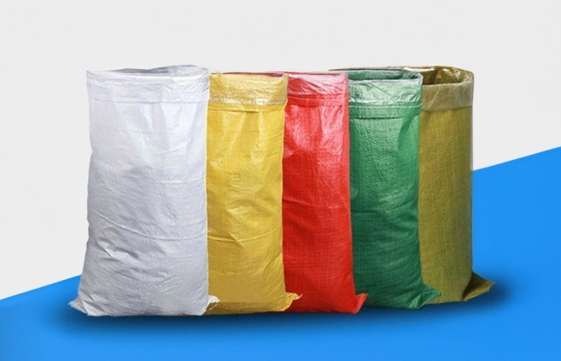PP woven bags (made from polypropylene) are widely used for packaging in various industries due to their strength, durability, and versatility. Whether they are a sustainable and smart packaging option depends on several factors that affect their environmental impact:
1. Material Composition
- Polypropylene (PP): PP is a type of thermoplastic polymer that is strong, lightweight, and resistant to many chemical solvents. It is derived from petroleum or natural gas, making it a fossil-fuel-based product. However, like polyethylene (used in HM liner bags), polypropylene is recyclable.
2. Recyclability
-
Easily Recyclable: PP woven bags can be recycled multiple times if disposed of correctly. Recycling polypropylene consumes less energy compared to producing new virgin materials. The recycled PP can be turned into various products, including textiles, automotive parts, or other plastic items.
-
Circular Economy Potential: Due to their recyclability, PP woven bags can fit into a circular economy model, reducing the need for new raw materials and cutting down on plastic waste when recycled properly.
3. Durability and Reusability
-
Durability: One of the key advantages of PP woven bags is their high strength and tear resistance, making them suitable for carrying heavy loads. This durability increases their potential for reuse, a crucial aspect of sustainability.
-
Reusability: PP woven bags are often reused multiple times, particularly in agricultural and industrial settings. If consumers and businesses maximize the reusability of these bags, they help reduce the demand for single-use packaging.
4. Environmental Impact
-
Non-Biodegradable: PP woven bags, like most plastics, are not biodegradable. They can persist in the environment for a long time if not recycled properly. This means that proper disposal and recycling are critical to minimizing environmental harm.
-
Lower Carbon Footprint When Reused: Reusable PP woven bags have a lower carbon footprint compared to single-use plastic bags. A life-cycle assessment (LCA) of plastic packaging shows that reusable packaging solutions generally perform better in terms of carbon emissions when reused multiple times.
5. Sustainability and Waste Management
-
Waste Management Systems: The environmental benefits of PP woven bags are closely tied to the availability of effective recycling and waste management systems. In regions with robust recycling programs, PP woven bags can contribute to a more sustainable packaging system. In areas where recycling infrastructure is lacking, they may end up in landfills or as litter, contributing to environmental degradation.
-
Energy Efficiency: PP bags have a relatively low production energy requirement compared to other plastic or woven materials, which can make them a more energy-efficient choice for large-scale packaging needs.
6. Alternative Sustainable Options
-
Upcycled or Recycled PP Bags: Some manufacturers are producing woven PP bags from recycled polypropylene, further enhancing their sustainability profile. These recycled bags help reduce the demand for virgin plastic materials.
-
Biodegradable Additives: There are also ongoing innovations in the development of biodegradable PP, which can break down more quickly than conventional plastics, although this technology is still developing and not widely available.
Conclusion:
PP woven bags are a smart and relatively sustainable packaging option, particularly when they are reused multiple times and recycled at the end of their life. Their durability and recyclability make them a more eco-friendly alternative to single-use plastic bags, provided they are disposed of properly. However, they are still derived from non-renewable resources and are not biodegradable, so continued use should be coupled with efforts to improve recycling and explore even more sustainable alternatives, such as biodegradable plastics or natural fiber bags.
